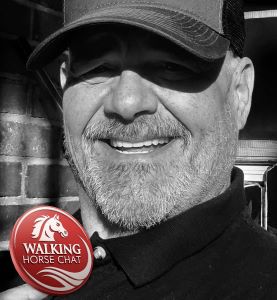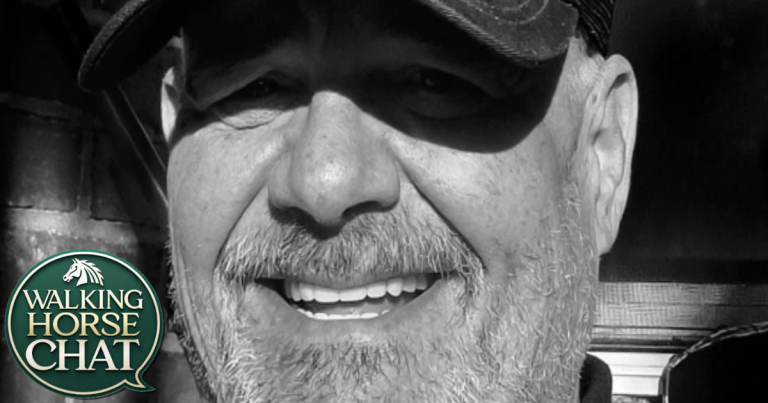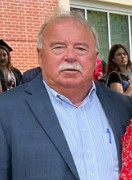Editorial: Mayor Chad Graham’s Neglect of the Tennessee Walking Horse Industry
Bedford County, Tennessee, is synonymous with the Tennessee Walking Horse, a breed celebrated for its grace and a show circuit that has fueled local pride and prosperity for generations. Yet, amid this legacy, Mayor Chad Graham’s administration has glaringly failed to advocate for an industry under siege. While Mayor Graham touts achievements in education, public safety, and infrastructure, his silence and inaction on policies threatening the Walking Horse community reveal a troubling disconnect from a cornerstone of Bedford’s identity and economy.
Economic Priorities Overlook the Walking Horse Industry
Mayor Graham’s economic development agenda emphasizes industrial parks, broadband expansion, and partnerships with institutions like Meharry Medical College . Yet, these initiatives sideline the Walking Horse industry, which generates millions in revenue and supports countless jobs. The Tennessee Walking Horse National Celebration alone is a linchpin of Shelbyville’s economy, drawing visitors nationwide. Industry leaders warn that USDA regulations banning performance divisions—a move recently challenged in court—could “dismantle a significant portion of the industry” and devastate rural communities reliant on shows for fundraising . Despite this, Graham’s public statements and grant allocations lack meaningful support for the industry’s survival, prioritizing generic “growth” over preserving cultural heritage.
Absence of Advocacy During Regulatory Battles
While the Walking Horse industry fought the USDA’s 2024 Rule—a sweeping ban on action devices and pads—Mayor Graham remained conspicuously absent from the fray. Industry leaders like Warren Wells (CEO of the Tennessee Walking Horse National Celebration) lamented spending “millions to challenge our own government” 1, yet Graham’s administration offered no vocal or financial backing. Contrast this with his proactive stance on courthouse renovations or emergency radio systems 13, and the disparity is stark. The industry’s court victory in February 2025 , while significant, was achieved despite local leadership, not because of it.
Dismissive Rhetoric and Missed Opportunities
Graham has called the Celebration a “cornerstone of our community” , yet his actions betray hollow platitudes. When USDA rules threatened to erase the performance division—a segment driving 85% of show revenues 7—Graham’s response was muted. Meanwhile, industry advocates like Mark Farrar (TWHBEA) stressed the need for fair treatment, stating, “We aren’t asking for any kind of special treatment…just treat us like everybody else” . Graham’s failure to amplify these concerns or lobby for regulatory balance underscores a lack of political courage.
Contradictions in “Community First” Leadership
Graham’s campaign pledges focus on “Better Bedford” through education and infrastructure 13, yet his policies ignore the Walking Horse industry’s role in unifying the community. Local shows are “vital hubs for middle-class Americans,” fostering camaraderie and funding civic projects . By neglecting this, Graham undermines his own vision of “preserv[ing] our way of life” . His administration’s silence as federal overreach threatens these events reveals a prioritization of bureaucratic projects over grassroots traditions.
The Cost of Complacency
The Walking Horse industry’s legal battles highlight a broader pattern: Graham’s reluctance to confront federal overreach. While he boasts of securing $14 million in grants 13, the industry’s fight for survival relies on private donations and legal funds 1. This indifference risks irreversible damage. As one breeder warned, eliminating performance divisions could threaten the breed’s existence. For a mayor who claims to “cherish his community,” such complacency is inexcusable.
A Call for Leadership
Mayor Chad Graham’s tenure has been marked by progress in many areas, but his neglect of the Tennessee Walking Horse industry is a stain on his legacy. The industry’s plight is not just about horses—it’s about preserving Bedford’s soul. If Graham truly believes in “servant leadership” , he must step off the sidelines, advocate for equitable regulations, and ensure that federal agendas do not erase a heritage that defines his county. Until then, his failure to act will remain a betrayal of the very community he vows to protect.










